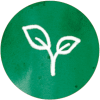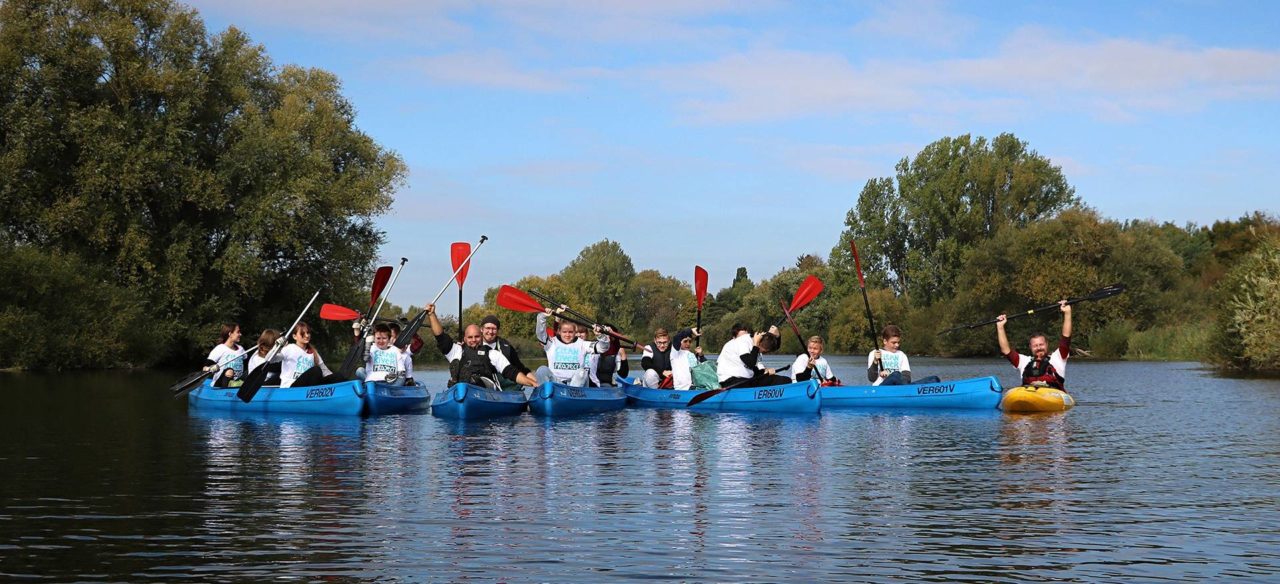 Collecting rubbish, education and photo art for clean rivers and oceans!
Collecting rubbish, education and photo art for clean rivers and oceans!
Environmental education with the "Clean River Kids" for sustainable development
"My dad said that the earth will explode if we keep producing so much plastic waste," says Lisa, nine years old, during our school project. And unfortunately she is not that far off the mark. Half of all plastics ever produced have been produced in the last 15 years alone (Heinrich Böll Foundation & BUND, 2019). So the production of plastic has indeed exploded. It is now over 400 million tonnes a year worldwide (Heinrich Böll Foundation & BUND, 2019). Almost half of this is single-use packaging, which has a lifespan of only a few minutes to hours, but can remain in the environment for hundreds of years if not disposed of properly. For animals in particular, the effects are devastating. Many lose their lives to human rubbish because they mistake the plastic waste for food or get tangled in it. The dangers to humans are still unclear. However, one study found that we ingest about 5 grams of microplastic per week - the equivalent of a credit card (WWF, 2020).
Necessity
Lasting behavioural change in dealing with plastic for the long-term protection of our waters and marine ecosystems.
Activity
Hosting school projects to raise awareness about the problem of plastic waste pollution and to communicate alternative courses of action.
Countable effort
Number of children reached per school project and the amount of waste they collect together.
Result
The children experience and understand the problem and learn to act in an environmentally friendly way.
Systemic effect
Education and awareness raising promote a shift away from a throwaway society towards a sustainable stewardship of our ecosystems.
Background
The Germans like to see themselves as world champions in recycling, but in practice it looks different: Of the 5.2 million tonnes of plastic waste collected in 2017, only 810,000 tonnes, or 15.6 per cent, was recycled (Heinrich Böll Foundation & BUND, 2019). Much of the waste is still dumped in landfills or incinerated. In addition, a considerable amount ends up in the natural environment. Our oceans and inland waters are particularly affected, because that is where the waste usually ends up if it is not disposed of properly. The Rhine alone transports about 10 tonnes of plastic waste into the North Sea every year (Mani et al., 2016).
Already today, plastic fragments can be detected in the stomach contents of more than 90 per cent of seabirds. Every year, about one million of them die because they have ingested plastic or become entangled in floating material (Wilcox, 2015). Around 80 per cent of this litter enters the oceans from land via rivers (Lebtron et al., 2017). Most of it comes from carelessly discarded packaging and disposable products (Heinrich Böll Foundation & BUND, 2019). In order to avert the collapse of our marine ecosystems, there needs to be a shift in awareness towards the responsible use of resources. Future generations will have to bear the consequences of our consumption behaviour, which is why educating and informing our children is crucial for further development. They need to realise that what we do on land also has an enormous global impact on life on and under the water.
The good deed
Your good deed today makes 5 minutes of a plastic waste workshop possible, which serves to educate children and young people about plastic waste pollution in our waters. The children and young people undergo content-related preparation for the topic at school. Afterwards, they work together to collect rubbish on land and in the water. The focus here is on their own experience of the pollution of our waters and the experience of natural spaces. At the same time, the collection campaign also reduces plastic waste pollution. This has a direct positive effect on the natural environment, our habitat. After the collection campaign, they process the impressions and ideas they have gained artistically. This leads to photographic artworks, texts, videos and new approaches to solutions. Throughout the project, there are repeated discussion rounds in which what has been experienced is reflected upon and the substance of the problem is conveyed. The children and young people quickly understand the connections, take up alternative courses of action and transfer what they have learned to their own lives.

AboutGermany
Berlin
Capital
83,240,525
Number of inhabitants
45,724 USD
Gross domestic product per capita per year
6 of 189
Human Development Index
Germany is located in the middle of Europe and consumes by far the most plastic in the entire EU, accounting for 24.2 per cent of total demand (PlasticsEurope, 2019).
About the organization and further information
Association
Clean River Project e.V.
Website
Further information and source
- Heinrich-Böll-Stiftung & BUND, 2019. Plastikatlas, Druckhaus Kaufmann, Lahr.
- Lebreton, L. C. et al., 2017. River plastic emissions to the world's oceans, Nat. Commun. 8, 15611.
- Mani, T. et al., 2016. Microplastics profile along the Rhine River, Scientific Reports 5.
- PlasticsEurope, 2020. Plastics - the facts 2020, Stand: 25.03.2021, Brüssel.
- Umweltbundesamt, 2019. Plastik, Umwelt-Indikator, Stand: 25.03.2021, Dessau-Roßlau.
- Wilcox, C., van Sebille, E. & Hardesty, B. D., 2015. Threat of plastic pollution to seabirds is global, pervasive, and increasing, University of California, Proceedings of the National Academy of Sciences.
- WWF, 2020. WWF-Hintergrundpapier "Mikroplastik in der Umwelt", Stand: 23.03.2021, Berlin.




